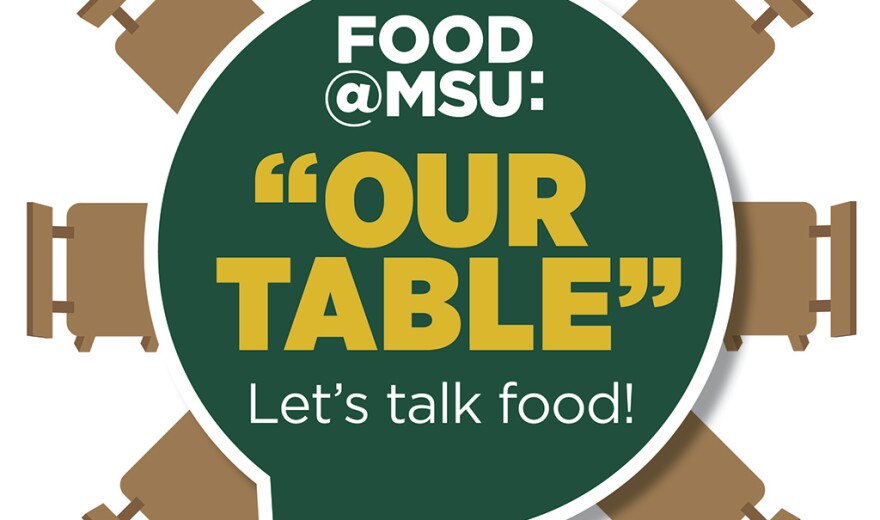Food waste was the topic of discussion when Michigan State University (MSU) hosted its second “Our Table” event on Wednesday, March 21.
“Food@MSU is a campus-wide initiative to foster dialogue, listen to consumers, and help all of us make more informed choices about what we eat,” says Sheril Kirshenbaum, who moderates the Our Table conversations. “Our Table is a series of roundtable discussions on a variety of topics like food access and food waste.”
Jonathan Bloom, a self-described food waste thought leader and warrior was a panelist.
“Food waste is a problem that hides in plain sight,” he says. “And it’s something that we all contribute to but aren’t necessarily aware of. About 40 percent of the food available for consumption isn’t actually consumed. And we’re wasting that massive portion of our food chain when it could be going to help others and feeding people in need.” He says there are environmental and economic implications of food waste, too.
In 2010, Bloom wrote the book American Wasteland: How America Throws Away Nearly Half of Its Food (and What We Can Do About It). He says there are small steps we can all take to attack the problem.
“It starts with being a smarter shopper and not buying so much food that you’re essentially guaranteed to waste some of it. Our food needs to be stored properly in the refrigerator, too, and we should consider reducing our portion sizes when we eat.”
Natalie Molnar is program coordinator for Live Green Lansing and an energy analyst for the Lansing Board of Water and Light. She says 40 percent of our food waste is organic material and encourages composting of that material, and she says it’s important to reduce our overall food waste.
“It’s a really valuable product,” she says. “We don’t call it waste; we call it food scraps. Food scraps are a resource that can be turned into really valuable material.”
Kirk Heinze hosts sustainability-focused segments on MSU Today.
“If you start thinking about food as a commodity and precious resource instead of just food that you can throw away, I think that starts turning the whole mentality around,” says Heinze.
Sriram Narayanan, associate professor of supply chain management at MSU’s Eli Broad College of Business, joined the panel and talked about food waste from a supply chain perspective.
“One of the big tenets in supply chain is to not make more of something than you need,” Narayanan adds. “It starts with an understanding of what you need in the first place. So sometimes when we mismatch supply and demand, we tend to have a lot of waste.”
“The key message is that minimizing food waste is not that challenging,” says Bloom. “It’s not that difficult; it just takes a little effort and awareness. Apathy is the enemy. And so getting people to recognize the problem and see where they can do something differently to help the whole country and our culture get better at minimizing food waste is the key.”
MSU Today airs Sunday afternoons at 4:00 on 105.1 FM and AM 870.

